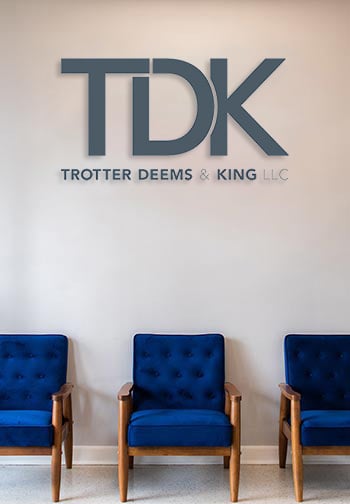Dedicated Representation Throughout The Estate Administration And Probate Process
Estate administration, or the act of collecting and managing an estate to pay debts and distribute remaining property after the passing of a loved one, is daunting. Thankfully, you do not have to face either the estate administration portion or the probate process alone. You can choose an experienced and knowledgeable attorney to guide you through these processes.
We are Trotter Deems & King LLC, a team of Georgia attorneys who aid clients across the Cartersville community and the surrounding area. We can help save you considerable time, money and energy in settling the affairs of an estate. We have extensive experience with the probate and administration processes.
Learn More About Estate Administration And Probate
Estate administration is much more complicated than fulfilling a will. We can help you with considerably complicated matters like:
- Collecting all assets of the estate, including stocks, real estate, money and personal assets
- Paying any owed debts to insurances, utility bills, etc.
- Alerting the bank, pension, 401k and other major institutions of the account holder’s passing
- Determining heirs based on any wills, or following the intestacy laws (which is a process that occurs if someone passes without a will)
If the estate needs to go to probate, you should prepare yourself for a longer journey.
Probate is the process in which a court oversees the administration process. Because a court is involved, each task in this process takes more time to complete. In Georgia, the law allows an heir to request to skip the probate process. Conditions like all heirs agreeing to skipping probate and agreeing on how to divide the assets need to be met. We can help you either work through the probate process or try to work around it.
Let Our Experience Be Your Guide
We know which actions to take and what needs to be done based on each unique situation. Many of our clients are looking for someone to help them move into the next chapter of their lives, and we are happy to oblige by overseeing the estate administration or probate process for them.
If you are ready to meet with an attorney who is committed to helping you and your loved ones, contact us today. Call us at 770-382-6144 or email us here to schedule your free initial consultation today.

